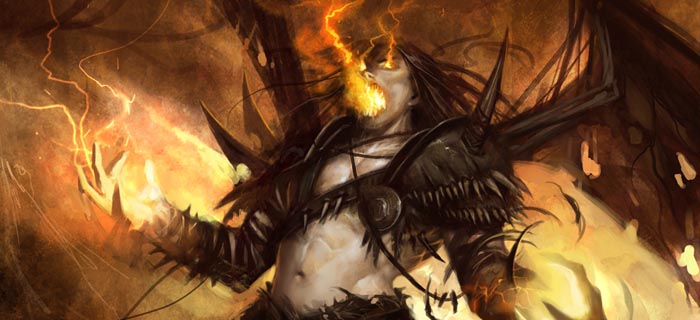Get Good: How to improve after hitting the wall
Every once in a while I’ll get a message from another player who seems to have “hit a dead end.” They’ve put their share of time into training, they’ve studied the matchups and watched videos, and they’re playing other players, but continually losing. Everyone gets this feeling once in a while. From my own experience, I’ve learned a couple setups and option selects and tried integrating them into matchups only to see it have very little effect on my play. Possibly as a result of being unable to comprehend why I would still lose despite unlocking a “secret tactic” that I felt ensured my victories, I began to spiral downward, and lose more.
That’s where that feeling of hitting a wall starts for me – high expectations.
Why aren’t I winning?
The first thing to know is that as you reach a certain point in the game, anything you add to your gameplan has a very small effect. Some of the best unblockables only work on certain characters, off of certain knockdowns, and only on certain places in the screen. Essentially, there is a strict criteria that is tough to reliably meet.
Even some character-specific combos can rarely be initiated, and this has a large part to do with the metagame – if they’re aware of your character specific, highly damaging combo, they’ll be spending a lot of their energy avoiding the setup altogether. Basically, not everything you learn or work on will have an instant impact on your overall success with the game. In fact, there was only a brief period of time where I feel stuff I did learn had a major impact on my game, and this was shortly after the initial release of Vanilla in 2009 and after Canada Cup in 2010.
So, it’s not uncommon to feel as though despite learning new tactics, you’re not actually getting more wins. This is where people begin to feel as though they’ve hit a wall. The fact of the matter is, in any loss, you’ve done something wrong. Clearly, your opponent also did something right, and this brings me to what’s really going on when people “hit a wall” – you’re still losing mindgames.
Mindgames 101
Think about it. Games are all about mental stamina. In my match against Air at April Duels 2012, I was about 100 health from beating Air and taking it, which would have been a pretty big upset. Instead, I improvised a pretty lousy setup, got punished for it, and lost that round, when I was so close to beating him.
Long story short, that was the end of me – I had officially run out of mental stamina and couldn’t keep up with him for the final match of our best of five, which he won two rounds to none.
The fact is, what killed me in that match was not knowing a better set up after connecting with my ultra, and that’s what forced me to do the lousy set up I did and get put in a terrible situation. But the knowledge that came with losing that round – that I was 100 health from putting him away and going up to fight Justin Wong in the finals next, who I was desperate to settle the score with (having been put into losers by him)… that checked me out of the final match completely.
The first four matches of the best of five saw me play with a lot of momentum I really put Air on his heels. I knew the matchup, I was hitting combos, and I generally worked hard for the win, but as soon as I lost that round when I was so close to beating him, I was done.
I lost to Air because my mental toughness was not on par with his, and my argument for “hitting a wall” is that the same thing is likely happening when it feels you’ve hit a wall. If you’re losing, the knowledge you need to succeed in the future is being provided to you, and that’s nearly always what losing matchups is about – not knowing as much as your opponent. This extends beyond technical aspects of the game, like not being aware of the start up and recovery of certain normals, but also that you don’t know clearly enough what your opponent’s gameplan is.
Substantiate your losses
That’s the problem with hitting a wall – you essentially have to choose one of those two reasons as to why you lost, and in either case, it’s better not to get worked up about losing. If you don’t know enough about the matchup, then you’ve just been provided with an incentive after losing to learn more about it. And if you know you’re losing to the player more than you are the matchup, not 0nly is it possible for you to gain an extra edge on matchup knowledge – and trust me, even at the high level of SFIV, there is always something more you can learn that they might not know – but it could just be that your mindgames aren’t strong or diverse enough.
That’s a bit of a bittersweet observation, though, as knowing how to win at mindgames is never 100% clear. However, I think that’s the main aspect of what people are missing when they come to me with this problem. They could know the entire matchup inside and out, better than their opponent, but they just can’t put it together in a way such that they can continually win mindgames.
The upside is, as long as you know where the problem lies, you can still address it. Winning at mindgames is all about observation, analysis, and prediction. Some players can go without learning the matchups as well as others and succeed by continually reading their opponent. However, as Street Fighter IV has been out for three years now, those people are harder to find. Generally, all players have a solid grasp on the metagame and know their matchups well.
Really, mindgames in Street Fighter IV exist as a result of the interaction between both characters’ movesets, but more importantly, as a result of the interaction between both players. So understanding how you can use your characters’ attributes to set up and execute mindgames is important. For a character like Vega, the mindgames that exist revolve around his kara throw mixup and his poking game. Will someone tech your throw, or block? Feeling out your opponent throughout the match lets you figure out which offensive maneuver is going to be more successful – a throw to beat blocking, or a frame trap to beat a throw tech.
Offering your own diagnosis
And really, that’s what high level play is all about – feeling out your opponent and winning at mindgames. Fortunately, this is a skill that can be developed. Play carefully, and precisely, and safely, and see how your opponent reacts. Conversely, take a risk early on and see how they react.
Come up with offensive patterns and defensive techniques and see how they adapt when you are successful, or if you aren’t, be prepared to come up with a counter strategy the next time this situation arises. Be bold in your risks, but make educated guesses at the same time. Stuff like wakeup ultras are seldom warranted, especially if you have a reversal better suited to wakeup usage.
Watch replays of your matches, and see what went wrong. Like I said earlier in the article – you lost. You did something wrong. Not only that, but watch what your opponent did right. Were you teching too many throws, and he capitalized on his frame traps into big damage? Was he evading a set up you have constantly because you weren’t option selecting or just following through on a psychic punish? Did you anti-air him enough?
Again, as I stated earlier in this article, the feeling of “hitting a wall” has a lot to do with setting high expectations for yourself. That’s not always a bad thing, as it can provide you with a little more motivation to take on some tough challenges, like sending an invite to the guy on your friends list who routinely kicks your ass, but just remember that the game is a continual learning experience. Every time someone has come to me feeling down about losing despite thinking they were doing the right thing, I insist that there is always something they are doing wrong. There is always a remedy to continually losing.
Relax, reflect, and refocus
That’s the beauty of competition. I’ve always felt that I am consistently at the top of my game, because I feel I’m constantly improving, even just by writing articles like this – I’m merely articulating my own thought processes, and trying to help others with their own gaming problems by providing what I hope is thoughtful advice.
I have to reflect – is it helpful advice? Am I being realistic? Was that a comma splice? Succeeding in competitive gaming is all about reflection and careful analysis of every possible aspect going into any match – for those who are hitting a wall, take a look in the mirror. Embrace your capacity and your desire to improve, and follow through on it, even if it feels as though you aren’t getting immediate results. Keep grinding and trying.
Until then, swallow your pride and take the losses – Daigo has won more than any other player in the world, but he has most definitely lost more than anyone, too.








The advice of “Keep grinding and trying” was exactly what I said to my ex-girlfriend.
How dare you mar my comment page with your dirty jokes. Despicable!
Your articles apply to a lot of games.
That’s a good thing right?
I hope so. My articles don’t intend to speak directly to fighting gamers or even gamers in general, but rather, competitors of any kind. I merely use SF4 as a medium to provide examples, which I hope are helpful.
Nice read! As a SCV player I wholeheartedly agree on this…. every game is a continuous learning experience.
Jozhear is a TTT writer! SQUEE!
XD
I don’t play this game, I’m a competitive Splatoon 2 player, but this was great advice! :D
I’ve been hitting a wall for a few months now, still am to be clear, but I’ll try to take this to heart. I’ve known for a while that my mind games were bad, and I probably feel like I’m hitting a wall now ’cause I’ve started playing with people at a higher level; I haven’t adapted and tried to understand what I don’t understand yet.
I’m gonna get my comp friends to spec my games and give me feedback as a start. I’ll go from there.
Thanks for this! (Even though this is 9 years old ajsdhajk)